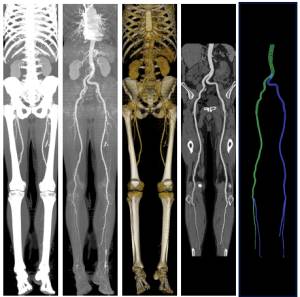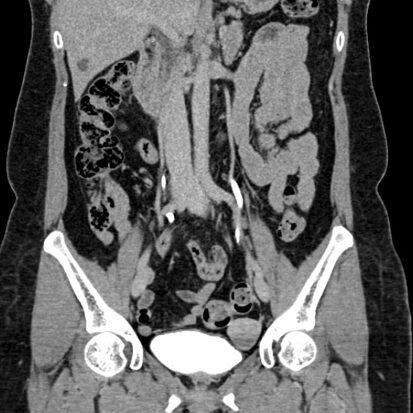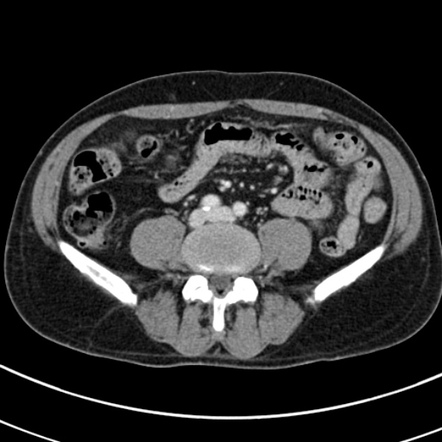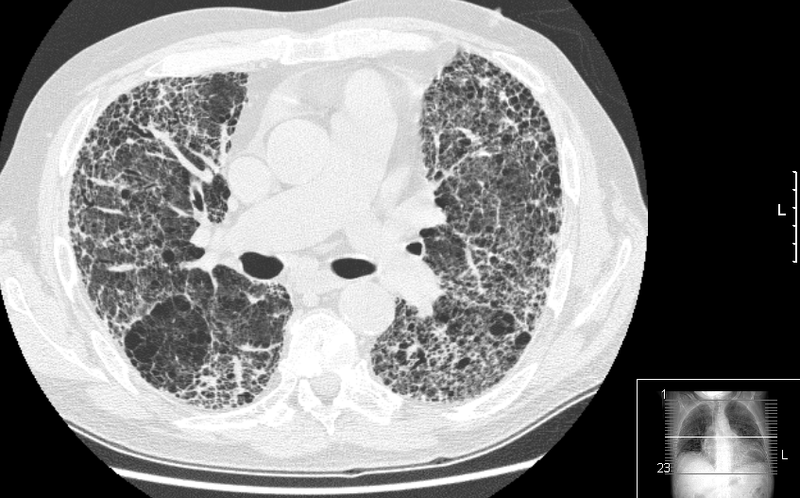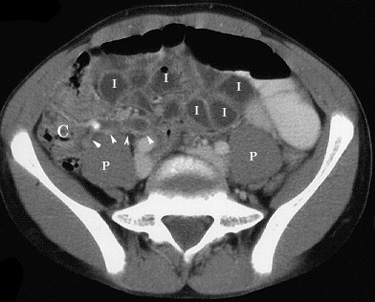CT peripheral angiography is a diagnostic imaging procedure that uses computed tomography (CT) technology to visualize the blood vessels in the peripheral (outer) parts of the body. This includes arteries and veins in the limbs, such as the arms and legs. Here are some key aspects of CT peripheral angiography:
Indications:
- Peripheral Arterial Disease (PAD): Evaluation of arterial blood flow in the limbs, often in cases of atherosclerosis or other vascular diseases.
- Deep Vein Thrombosis (DVT): Detection of blood clots in the veins of the arms or legs.
- Vascular Anomalies: Visualization of vascular abnormalities, such as aneurysms, stenoses, or arteriovenous malformations.
- Preoperative Planning: Planning for surgical procedures, such as bypass surgery or vascular interventions.
Procedure:
- Contrast Injection: A contrast dye, typically iodine-based, is injected into a vein to enhance the visibility of blood vessels during imaging.
- Scanning: The patient lies on a table that moves through the CT scanner. X-ray beams are directed through the body, and detectors on the opposite side capture the transmitted rays. Multiple images are taken at different angles to create cross-sectional views of the peripheral arteries and veins.
- Image Reconstruction: The collected data is processed by a computer to generate detailed cross-sectional images of the peripheral vascular system.
Advantages:
- Non-Invasive: CT peripheral angiography is a non-invasive alternative to traditional angiography, which involves catheterization of blood vessels.
- Whole-Body Imaging: In addition to the peripheral arteries and veins, CT can provide information about other structures in the body.
- Rapid Imaging: The procedure provides rapid and detailed imaging of the peripheral vasculature.
Considerations:
- Contrast Allergies: Individuals with allergies to iodine or contrast dye should inform their healthcare provider before the procedure.
- Renal Function: Assessment of renal function is important before administering contrast, as contrast agents can affect the kidneys.
- Pregnancy: CT scans, especially those involving contrast, are generally avoided during pregnancy unless deemed necessary for medical reasons.
CT peripheral angiography is valuable for diagnosing and evaluating peripheral vascular conditions, providing essential information for treatment planning. As with any medical procedure, it is important to discuss the risks and benefits with your healthcare provider and ensure that the procedure is appropriate for your specific clinical situation.

